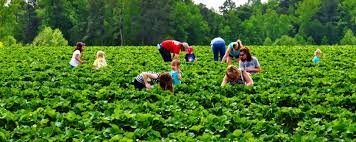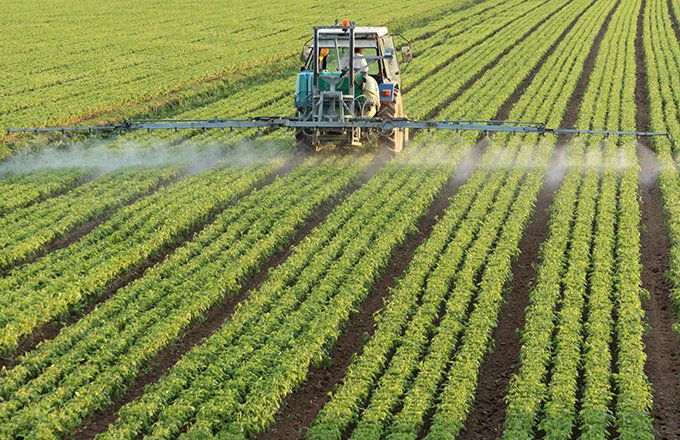It can appear to be a wise investment. In the end, regardless of whether the economy is either in recession or growing, there's still a need for people to have food to eat. Due to this, most investors see the agricultural sector and farming investments as resilient to recession. In addition, as the global population grows, farming will play a larger function in maintaining global society.
However, buying a farm isn't a practical option for the typical investor. The purchase of a farm requires significant capital investment, and the time and expenses of running and leasing farms are usually large. There are many alternatives to exposure to the agricultural sector besides putting funds into farms.
Farm REITs
The closest an investor could get to owning their farm without actually owning one is investing in a farming-oriented REIT. A few examples are Farmland Partners Inc. and Gladstone Land Corporation. These REITs usually purchase land and let it out to a farmer. Farmland REITs have many advantages. They offer more flexibility than buying just one farm because they allow investors to own interest in several farms over the entire geographic region.
Farmland REITs provide more liquidity than owning land that is physically farmland. Shares in most of these REITs can be traded quickly through exchanges. They also lower how much capital is required to invest in farms because a minimum investment is only the cost for one share of a REIT.
Agriculture Stocks
Investors also have access to various publicly traded firms that operate in agriculture. These include those who directly cultivate and grow crop products to those operating in various industries that help farmers.
Crop Production
An investment opportunity could be companies that grow, plant, and harvest their crops. Many of these firms perform other supporting functions such as distribution, processing, and packaging. However, there are very few publicly-traded crop production companies, including Fresh Del Monte Produce Inc., Adecoagro S.A., and Cresud.
Supporting Industries
Investors may also purchase shares in several sectors that are supportive of farming. The three biggest industries sell seeds and fertilizers, agricultural equipment producers, and processors and crop distributors.
Fertilizers and seeds
Numerous companies engage in the manufacturing and sale of fertilizer as well as seeds. Investors are interested in knowing the percentage of each company's income from agriculture. Some offer services in different industries.
Equipment
Agriculture is an industry that relies on equipment, and investors have the opportunity to gain exposure to the industry by investing in manufacturers of equipment with a focus on agriculture. Two companies heavily engaged in agricultural machines production comprise Deere & Co. and AGCO Corp.

Processing and distribution
Many companies supply the infrastructure to move crops from the field to the local store. The companies transporting, processing, and distributing the crops include Archer Daniels Midland Co. and Bunge Limited. Similar to equipment manufacturers and distributors, some only earn a small portion of their income from agriculture-related activities.
Ag ETFs
ETFs can be a great instrument for investors looking to diversify their exposure to the sector of agriculture. For instance, the VanEck Agribusiness ETF is a good example. It allows investing in a variety of companies, investing in companies that generate a minimum of 50 percent of their revenue from agriculture. The top-performing agricultural commodity ETF in terms of performance in 2020 includes The Teucrium Soybean ETF. As with investing in any ETF, investors must carefully examine the fees for the management of each ETF and the performance of the index the fund follows.
Ag Mutual Funds
Additionally, mutual funds are invested in the agriculture and farming sectors. If this sounds like something you would like, you must first figure out which funds invest in agricultural-related companies and commodities. Keep in mind that many of these funds are exposed to other industries besides agriculture. If you're focused on making an agricultural or farming investment, you're probably better off with different investment classes.
When investing in mutual funds, investors must be aware of fees and previous performance and compare them to the performance of ETFs. One illustration of funds exposed to agricultural businesses and commodities includes the Fidelity Global Commodity Stock Fund.

Soft Commodities
Speculative investors may be attracted by the thought of investing directly in commodities to benefit from price fluctuations in the market. Although you can be exposed to commodities by buying the futures contract, several ETFs and ETNs, also known as exchange-traded notes, provide diversification in exposure to the commodities.




